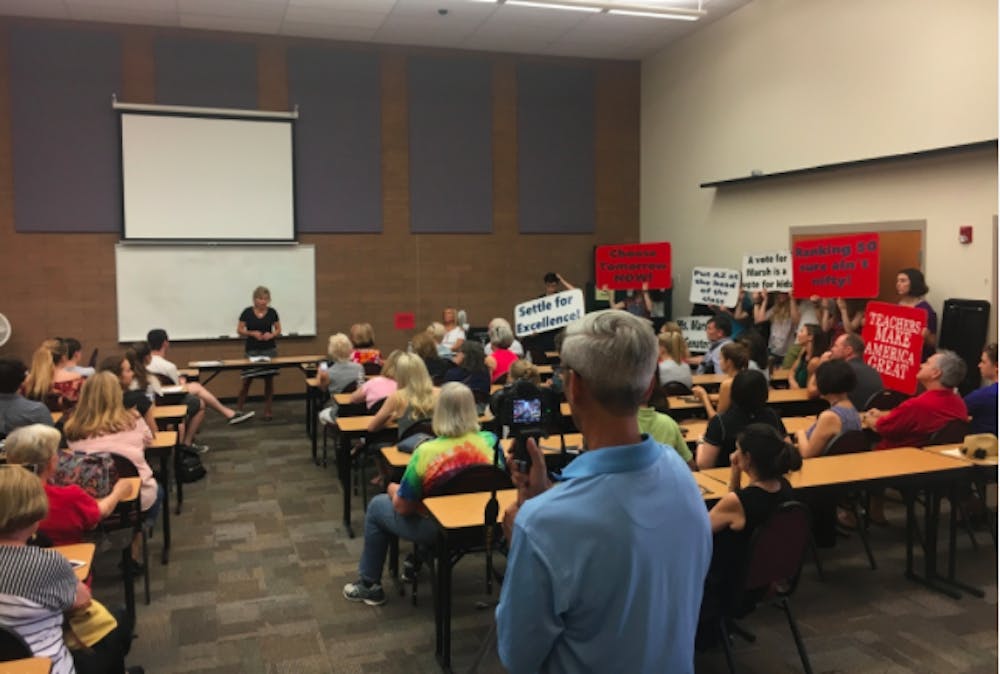“So, to everyone who voted, I want you to know that I hear you. To the two-thirds of voters who chose not to participate in the process yesterday, I hear you, too.”
Barack Obama made these remarks following dismal turnout numbers in the 2014 election, due to dissatisfaction with the current political parties. 2016 was no different.
Our political party system is not perfect, but it is what we have. For millennials right now, action is greater than apathy.
Across the country, there is no question that there is a large animosity towards political parties. Mention you’re a Democrat, or Republican, and you’re guaranteed an earful or a hawkish glare.
But the fact is, both political parties are aware of this. For Republicans, the 2018 midterms look grimmer by the day, and the Democrats must rebuild the trust they lost during the 2016 primaries. These situations provide a unique opportunity unlike anything we’ve seen in our lifetimes: a chance for millennials to change the platforms of our parties.
See Counterpoint: Politics should move beyond bipartisanship, focus on the people instead.
The Maricopa County Democratic Party made waves in trying to ensure millennials have a seat at the table. Literally. ASU Young Democrats President Zak Ghali sits on their executive board, representing millennials and college students at the monthly County Chair’s meeting, a decision made by County Chair Steven Slugocki.
“I’m just trying to give people who do the work the recognition they deserve,” Slugocki said of the move.
Big thanks to @therandyperez for his great training today for our new precinct committemembers! Really appreciate your help with everything! pic.twitter.com/GrtwvhCpq0
— Steven Slugocki (@Slugocki) March 18, 2017
Most important about his statement is that young people have to put in the work. We can’t just expect our Facebook posts to change how the party feels on an issue. We have to invest in partisan work, and they will in turn invest in us. The biggest advantage of working in partisan issues is the ability to make a difference on several issues at once.
"If we elect the right people, it’s going to help those nonpartisan issues," Slugocki said of partisan over nonpartisan work. "A lot of people care about voting rights. Adrian Fontes was obviously a partisan figure, but he’s done more to help voting rights in the last six months than Helen Purcell in the last 10 (years). That is an issue that a nonpartisan group couldn’t do, a nonpartisan group couldn’t knock on doors and say vote for Adrian Fontes like we can.”
Even more striking about Slugocki is his willingness to actually know young people, and not just give them lip service. In a letter signed to me, he crossed out my real name ‘James’ and wrote ‘Jimmy.’ For a young 21-year-old such as myself, it meant a lot that someone in charge of the entire county party would take the time to do that. It said a lot about the direction of the party and their treatment of millennials.
As millennials, we also hold another advantage to ensure change occurs. Currently, we now match baby boomers in number of possible voters. This means our voice is powerful, but in order to use it, we have to start enacting change, not just externally through protesting and Facebook posts, but also from within the parties to sustain change.
It’s clear that as millennials, we hold strikingly different views than older generations. As a Democratic student, I can say many of us are tired of the superdelegates in our presidential selection process, and I’m sure many of my Republican colleagues would say they are tired of the Mike Pence anti-homosexual agenda. These are just two examples of where work from within the party can steer it in a different direction.
But we can’t make these kinds of changes unless we are actually involved in the party, voting on these matters. So how do students make change from within the party? By becoming a precinct committeeperson. How do they do that? Give their local county party a ring. Chairman Slugocki and others are excited to have millennials on board. But most importantly, they’re willing to give us a voice.
PC’s have unique responsibilities, but none more important than their voting rights. They elect the executive board of the district, which makes decisions regarding the direction of the party in that region. They also vote for State Committee members. These are the people who vote on the party platform. They are the ones who elect members to the DNC and RNC.
The time is right, the opportunities are available, and the change can be made. But it's up to millennials to decide whether they will make their voice heard.
Reach the columnist at jarwood@asu.edu or follow @jimsthebeast on Twitter.
Editor’s note: The opinions presented in this column are the author’s and do not imply any endorsement from The State Press or its editors.
Want to join the conversation? Send an email to opiniondesk.statepress@gmail.com. Keep letters under 500 words and be sure to include your university affiliation. Anonymity will not be granted.
Like The State Press on Facebook and follow @statepress on Twitter.




